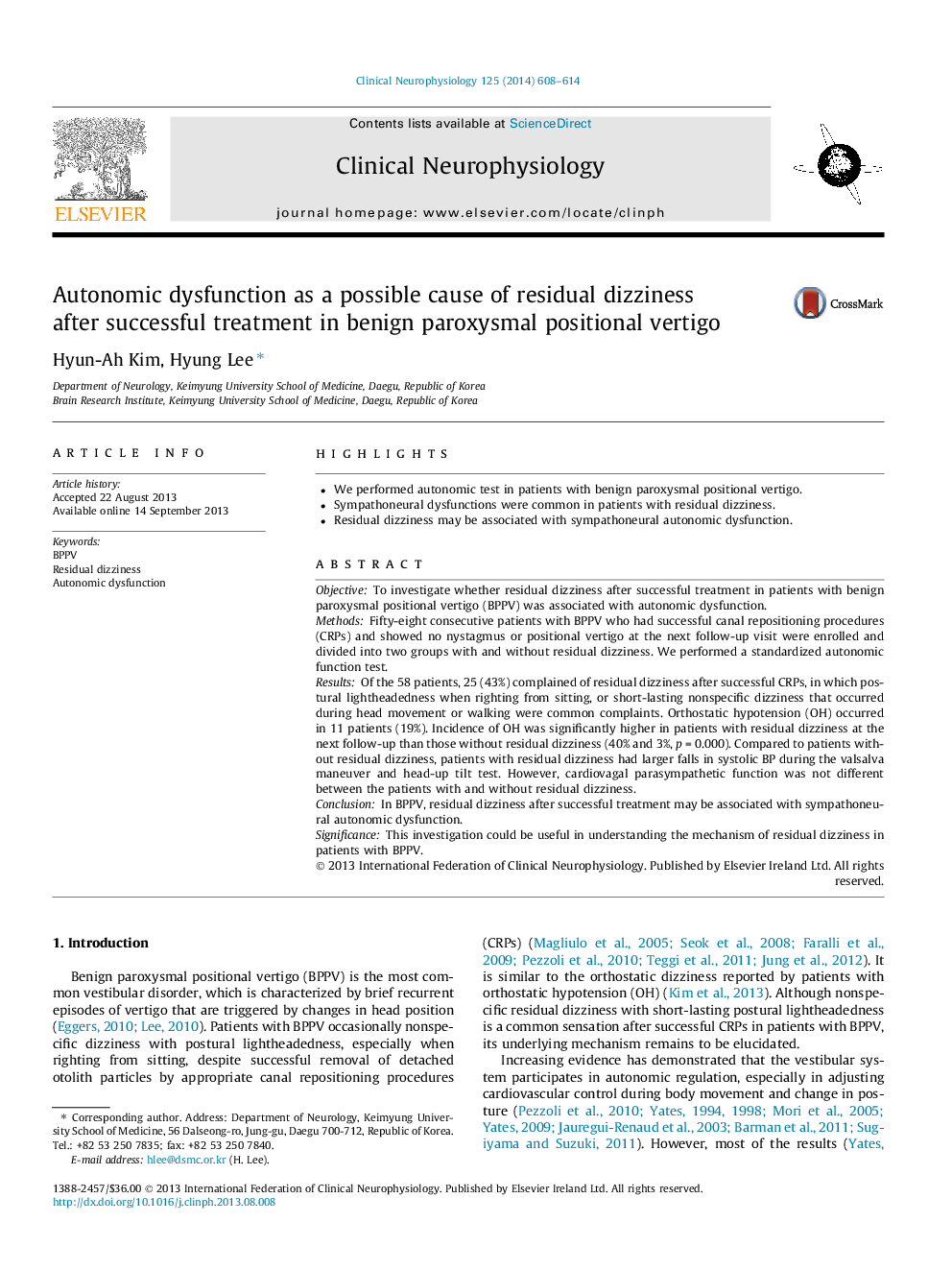| Article ID | Journal | Published Year | Pages | File Type |
|---|---|---|---|---|
| 3043952 | Clinical Neurophysiology | 2014 | 7 Pages |
•We performed autonomic test in patients with benign paroxysmal positional vertigo.•Sympathoneural dysfunctions were common in patients with residual dizziness.•Residual dizziness may be associated with sympathoneural autonomic dysfunction.
ObjectiveTo investigate whether residual dizziness after successful treatment in patients with benign paroxysmal positional vertigo (BPPV) was associated with autonomic dysfunction.MethodsFifty-eight consecutive patients with BPPV who had successful canal repositioning procedures (CRPs) and showed no nystagmus or positional vertigo at the next follow-up visit were enrolled and divided into two groups with and without residual dizziness. We performed a standardized autonomic function test.ResultsOf the 58 patients, 25 (43%) complained of residual dizziness after successful CRPs, in which postural lightheadedness when righting from sitting, or short-lasting nonspecific dizziness that occurred during head movement or walking were common complaints. Orthostatic hypotension (OH) occurred in 11 patients (19%). Incidence of OH was significantly higher in patients with residual dizziness at the next follow-up than those without residual dizziness (40% and 3%, p = 0.000). Compared to patients without residual dizziness, patients with residual dizziness had larger falls in systolic BP during the valsalva maneuver and head-up tilt test. However, cardiovagal parasympathetic function was not different between the patients with and without residual dizziness.ConclusionIn BPPV, residual dizziness after successful treatment may be associated with sympathoneural autonomic dysfunction.SignificanceThis investigation could be useful in understanding the mechanism of residual dizziness in patients with BPPV.
